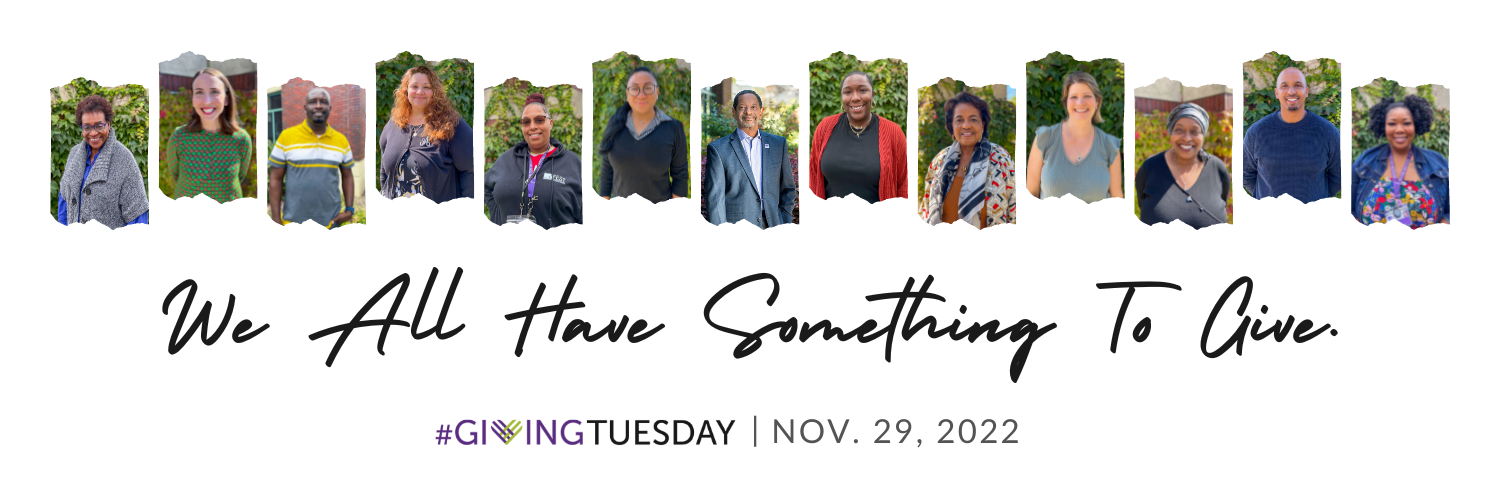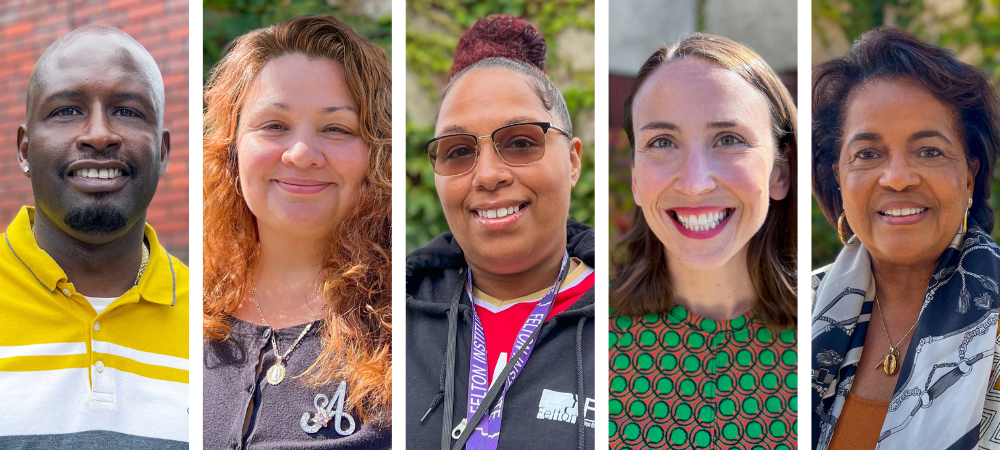
Felton Institute was founded on the ideals of community engagement and fostering programs and services that provide critical support to individuals and their families. The 133-year-old organization is led by the enduring dedication of a passionate leadership and workforce that serves and empowers others. Every November Felton takes part in Giving Tuesday, a global generosity movement that unleashes the power of people and organizations to transform their communities and the world. The national Day of Giving encourages donations to nonprofits who provide vital work in the community. On November 29th, Felton Institute will join the world for a day of celebration for Giving Tuesday.
In honor of this year’s Giving Tuesday, Felton is uplifting the voices of our talented workforce who give their time, compassion, and expertise to the community and beyond. They reflect on what ‘giving’ means to them – from community-building to removing barriers, to providing compassion and empathy to all they serve. They do this by engaging directly with clients who are unhoused, justice-impacted, and experiencing mental health challenges, and working behind the scenes supporting staff and day-to-day operations. Felton is united in creating successful, life-changing outcomes in the community.
Al Gilbert
Felton Institute President and CEO
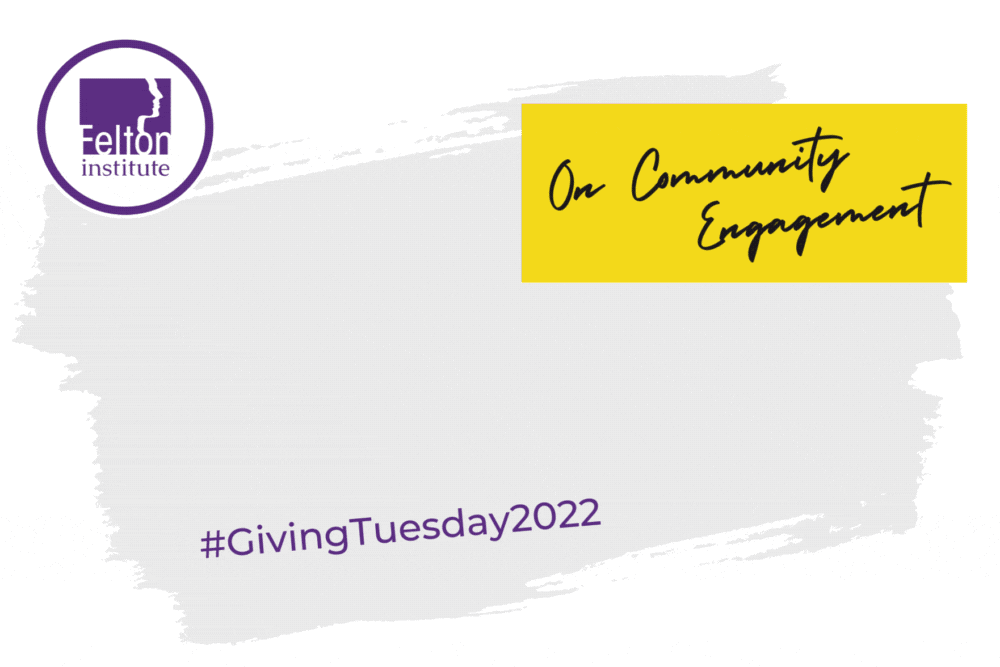
“At Felton Institute we start by building our own community here at our historic organization. We want people to understand how important we are to innovation and to creating a future where healthy communities thrive. This translates through the way we engage with individuals; ensuring that they feel supported and that they know where to go in crisis.
“We value and foster relationships with community partners and we’re creating sustainable and rigorous evidence-based practices working directly with the community. Their voice is the most important in terms of what need looks like and the experiences and challenges they face. That said, we have a long history of community engagement with diverse populations reaching across all racial, ethnic, cultural, social, and linguistic lines. In addition, we employ a racially and ethnically diverse executive leadership and workforce as well as those with lived experience – from former pregnant teen clients to the formerly incarcerated who provide their expertise and compassion.
“I’m inspired by all of my staff because they’re doing the hardest work. They care about what we do in the community and what we do as individuals. I am honored that people have chosen to spend their professional careers working at Felton. My job to them is to say, ‘thank you’ in as many ways as I can. I honor and appreciate the fact that we’re doing this important work together.”
BILLIE JEAN TERRY
Engagement Specialist, FEST Team
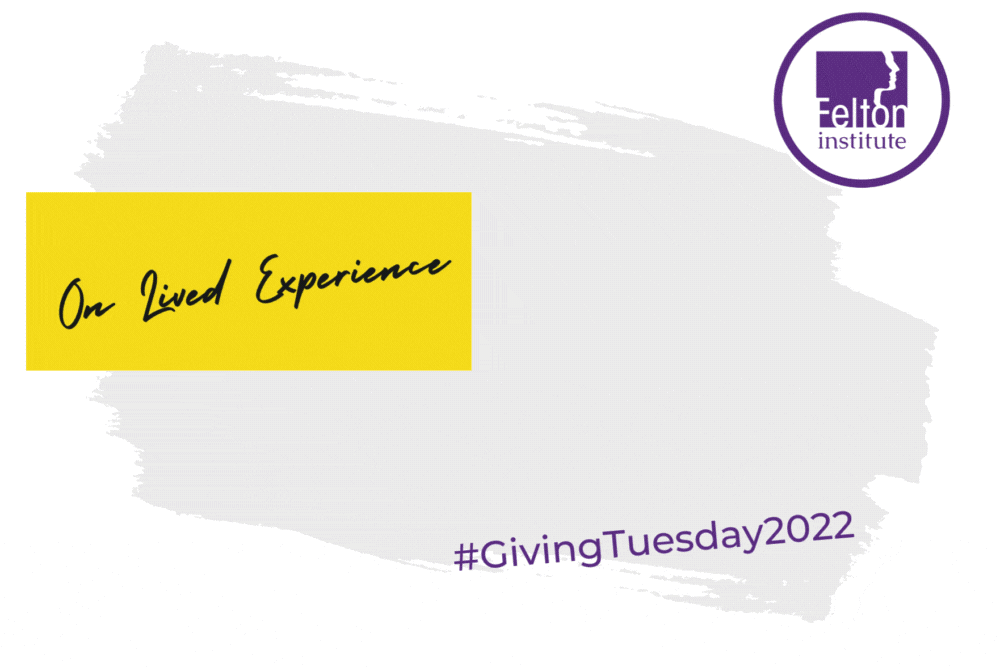
The Felton Engagement Specialist Team (FEST) program is comprised of skilled case managers who provide outreach and service linkage to support clients by addressing any combination of substance use, mental health, and physical health needs. The team also strives to secure temporary or permanent housing and promotes wellness, recovery, and safety for eligible clients.
“We’re out there on the streets working with clients. We’re actually engaged with the community, serving the vulnerable homeless population. We’re offering support, we’re offering housing, and we offer hope. This work is about compassion, empathy, and sympathy.
“I was a drug addict. I was lonely. I was beaten. I had nothing. That was my story. Because of my experiences, I know how to approach clients in a different way than someone who doesn’t have that lived experience.
“When I see clients make positive changes, it’s so fulfilling. One of my clients was six- or seven months pregnant. I said to her “let’s get you into detox. Let me make a phone call.” We got her into detox. She went to General Hospital, and she was able to give birth to a healthy baby. It’s experiences like these that make me want to keep going. When I do the work, I come at it with passion. When I help somebody, I go home, and I feel complete.”
Rayvon Williamson
Case Manager, CORE Services
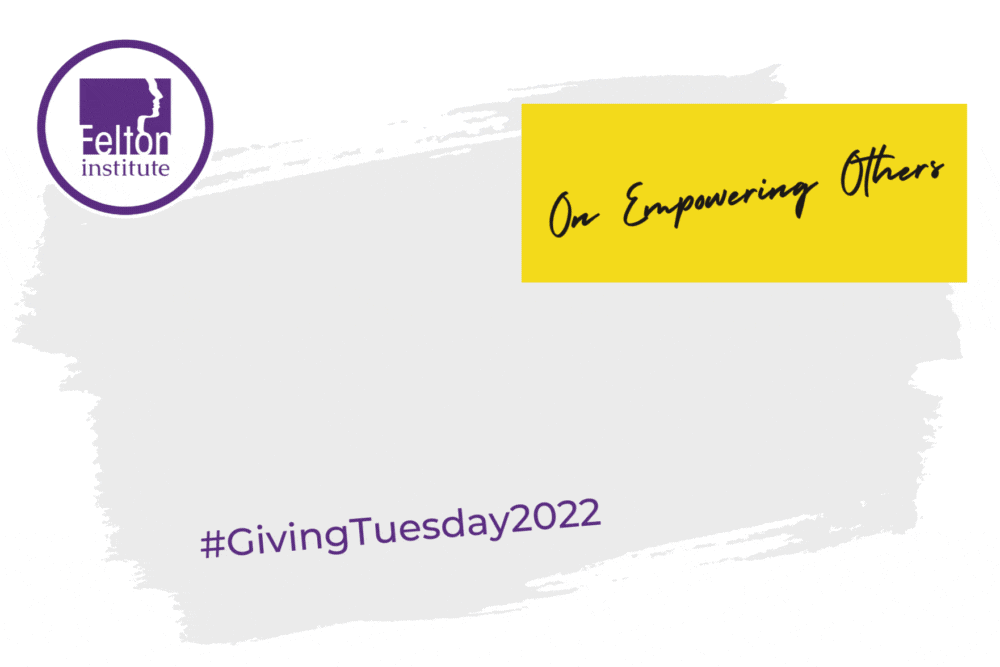
The Center for Reentry Excellence (CORE) program is a one-stop hub of wrap-around reentry services for justice-impacted individuals, in partnership with the Alameda County Probation Department, to help them re-enter society by finding housing, and employment, through one-on-one counseling and 12-Session peer support groups. (CORE Serves AB-109 Eligible Clients)
“My job is to remove barriers for justice-involved men and women by linking them to community resources that allow stability and growth for the client. We pride ourselves on healthy relationship building and fostering community building. Our work is creating positive, meaningful change in the community.
“We help clients reach a point of self-efficacy that empowers them to be agents of change in their own lives. It allows the opportunity for someone who is justice-impacted to be seen as a human being as opposed to a behavior or condition. Every individual who comes into our office is seen and treated as such.
“As a young person, I experienced different types of abuses in the home as well as incarceration. I’ve experienced a lot of the things that our clients have gone through. Because of this, I’m coming from a place of wanting to be their advocate. That motivates and inspires me.”
Ahide Palomera
Administrative Manager, Felton (re)MIND®
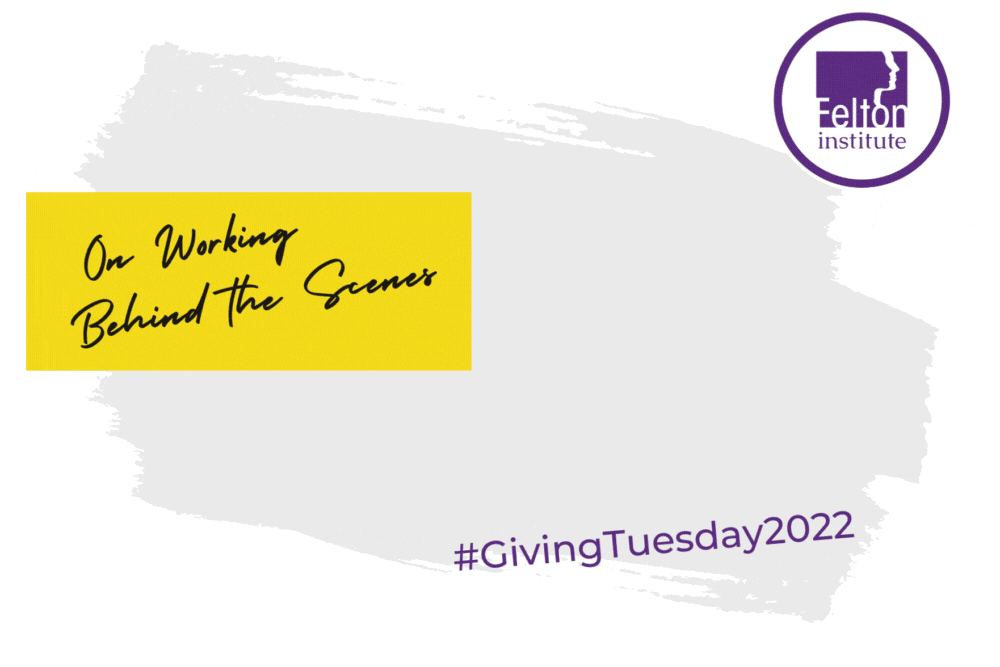
Felton (re)MIND® is an early psychosis program that delivers comprehensive treatment grounded in wellness, recovery and resilience to people experiencing early signs and symptoms of a psychotic disorder, as well as providing families the tools to support their loved ones in their recovery process.
“I support clinicians and staff behind the scenes with data entry and other administrative responsibilities. I’m a resource queen. When I’m out in the community I’m able to see all the different resources that are out there. And I come back, and I give them to the clinicians- I’m the added support to the team. I don’t work with clients directly, however, I am going to be that person to help them when they come in and I’m going to support the client. I understand my role and how we all work collectively together to support the client and the family.
“I believe in the mission and vision. I’ve been here 18 years. I truly believe because of all the different roles that I’ve had during those years that I have been given the privilege and the blessings to be able to give back.”
Jessica Benway
Quality and Compliance Manager, Quality Management
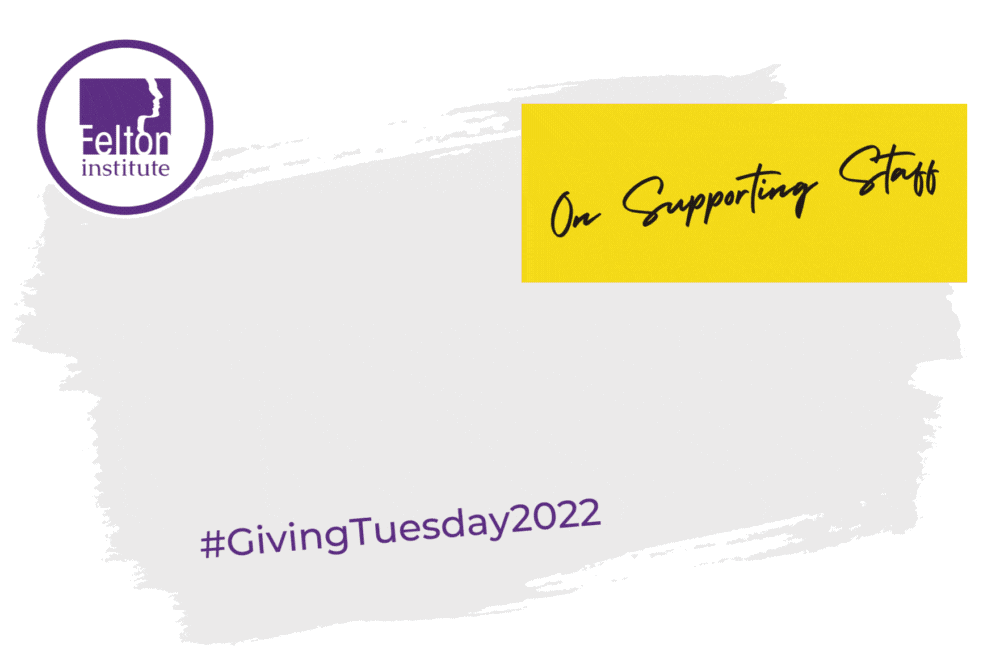
“Prior to my role at Felton, I observed many therapists getting burned out from documentation-related requirements. That is why I have worked hard on developing policy procedures that reduce the documentation burden on them. I believe that feelings are contagious and by reducing the stress of therapists, they’re going into work feeling calm and regulated. Therapists can then fully engage with our clients.
“I create change in the workplace by reducing stress and this has a positive ripple effect where all who engage with Felton – whether therapists or our clients- feel supported.”
Dr. Michelle Clark
Medical Director for the Justice Services Division
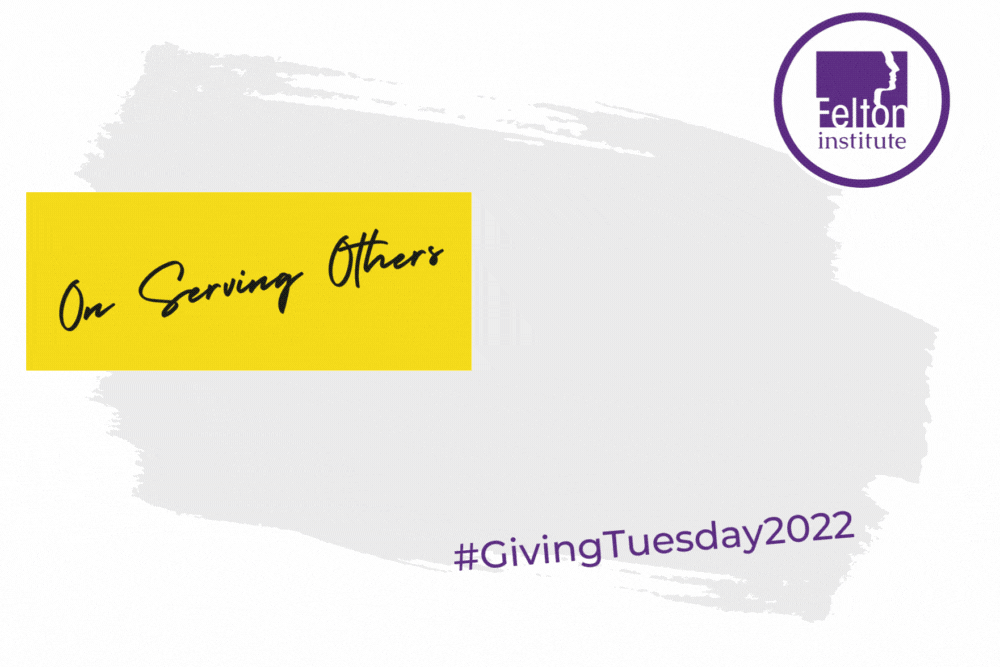
The Justice Services Division collaborates with various local agencies and officials to provide rapid response, community engagement, service linkage, and relationship-building assistance. Focus is given to those who are insecurely housed or unhoused, the formerly incarcerated, those with substance use and unaddressed mental health disorders.
“The Justice Division encompasses several different programs, but all of them are centered around assisting persons who are coming out of jail and/or prison. It’s about getting them back into the community where historically they have almost invariably fallen through the cracks and not had a hand to guide them. They come out with the clothes that were on their back and a few dollars in their hand, sometimes with no place to go, not knowing even how to navigate the community. Our services support and guide them through this experience.
“We help clients get what they need to maintain their focus so that they can take care of themselves and thrive. They want the same thing that everybody wants; they want a place to live, a way to have money, to be able to afford to live. They want to have some fun sometimes. They want to reconnect with their families. They want to get rid of the stigma that’s associated with having come out of jail or prison. We attend to all of these things and more in our programs.
“Felton addresses the health of the community by taking innovative, creative, and bold steps. We are client-driven and community-focused. We are not telling clients where to go but taking them to where they need to go.”
About Felton Institute: Founded in 1889, Felton Institute responds to human needs by providing cutting edge, evidence-based mental health and social services that transform lives. Felton Institute is a tax-exempt organization registered 501(c)(3) nonprofit under EIN 94-1156530.
Offering more than 50 acclaimed and honored programs that address homelessness, mental health, prenatal, adolescent, adult, and senior needs, Felton Institute provides services in San Francisco, Alameda, San Mateo, Marin, Monterey, Sonoma, and Contra Costa counties. Felton’s social services and programs utilize the latest scientific research, combining cultural sensitivity, deep respect for client and staff, and a commitment to social justice.
Felton is the oldest non-sectarian and nonprofit social services provider in the City and County of San Francisco. For over a century, Felton Institute has been at the forefront of social service innovation, pioneering new approaches to meet underserved populations’ emerging needs. At the heart of our work is the belief that individuals and families in crisis must have access to services and resources to help them build on their inherent strengths and develop self-sufficiency. www.felton.org
